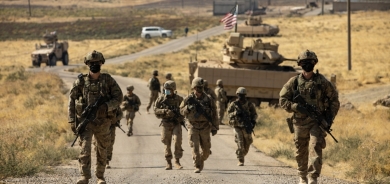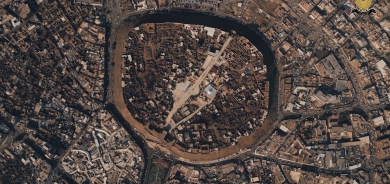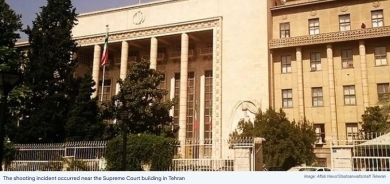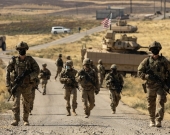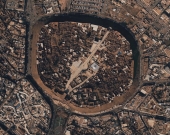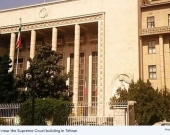In Iraq, the revenge of the Kurds

Shopping malls, the inevitable symbol of burgeoning wealth, are threatening the local bazar. The universities have glass fronts, hotel patios made out of marble. The low sky, grey weather, rain and mud from non-existent pavements have no influence: Erbil, the capital of the autonomous Kurdish region in Iraq is at the top of its game.
Iraqi Kurdistan will be exporting its oil directly to Turkey by Christmas. And that is without asking for help from the federal government in Bagdad, which is complaining but cannot do anything about it. For some time a big chain of Turkish trucks have been transporting Kurdish oil into Turkey. But this time, the Regional Government of Kurdistan (KRG) has its very own pipeline from the oil fields south of Erbil to the border town of Habur. Ankara and Erbil are proud to have signed a long-term supply agreement. Bagdad is wincing. Could Kurdish energy independence be the precursor of political independence?
Nechirvan Barzani is way too smart to open himself to that question. The 48 year old Prime Minister of the KRG is a man, himself part of the “Kurdish miracle”. He receives guests in a quasi-palace, a local Trianon, on the edge of town. Dark costume, tall, charming and perfect English, he states, “In the early 2000’s, we had no idea what was under our feet. Nobody would take a bet on us. Only small oil companies would take the risk to come to the autonomous region.”
Others were waiting for the Federal Parliament in Bagdad to pass a law outlining the distribution of oil income between Iraqi regions. A consequence of the fall of the Saddam Hussein regime in 2003, the 2005 Constitution creates a federal State. The Kurdish region, the north-east, under the American air protection since 2001, was already de facto autonomous. However, eight years on, the majority power in Bagdad, controlled by the Shia Arabs, has not been able to pass a law defining the distributing of oil income.
Snubbed
“We could not wait any longer. In August 2007 the KRG passed its own law on oil resource exploitation”, explained the Prime Minister. “First drillings were conclusive. Today all the big names in the sector are here: Exxon, Mobil, Total, Chevron, Gazprom”. The Autonomous Region is sitting on a pretty gold mine. That is, “about 45 billion of barrels and 3000 to 6000 billion m3 of gas“.
These numbers represent much more. This is a story of revenge, a snubbing of Bagdad, and reparation for 6 million Iraqi Kurds. This land was seen as the poorest in the country. It has experienced a quarter of a century of war, massacre, tortures, and an Arab power unwilling to give anything away to the Kurds. In the late 1990’s it went through a fratricidal war between the two parties which dominate the political local life, the Kurdistan Democratic Party (KDP) and the Patriotic Union of Kurdistan (PUK).
The Kurds have learnt from history. The whole region has betted on their inability to have govern themselves—that is those historically opposed to them—Bagdad, Tehran, Ankara. A massive mistake. Over the past twelve years (helped by the hydrocarbon), the Iraqi Kurds have built their own autonomy. They have their own army, their own police force, their own secret service, their own international airports, their own diplomacy. In a tormented Middle East, in an Iraq buried in an endless religious war, Kurds supply a rare commodity: security. This attracts an increasing number of foreign companies.
This Kurdish awakening would not have been possible without the rather unexpected complicity of the regional superpower, Turkey. For a long time it has been opposed the KRG, fearing a contagious effect on its own Kurds (population of 15-20 million). Part of the Turkish army is based p, the border with Iraqi Kurdistan.
It needed the meeting of two political minds, those of Nechirvan Barzani and the Turkish Prime Minister Recep Tayyip Erdogan, to emerge from an impasse. Recognising that he cannot eradicate the KRG, Erdogan has chosen to embrace it. Turkey needs the oil. “It is the first country to have showed interest in our resources”, says Nechirvan Barzani, who has developed a very personal relationship of trust with Erdogan. Turkey has become the first economic partner of the autonomous region.
Barzani has also formed “a very good relationship with Tehran”. Iran appreciates that Erbil maintains a relatively neutral position in relation to the Syrian tragedy. The KRG considers its main enemy today as Sunni extremism. Barzani successfully manages the diplomatic strategy ensuring zero conflict with its neighbours, each of which have a large Kurdish minority and have their own reasons to be suspicious of a successful independent model.
Lastly Bagdad, which denies the right of the KRG to directly export «iraqi» oil. Protests to Erbil are formal, where they consider that the central government will eventually accept the new reality. “I am confident. We are ready to negotiate a restitution percentage rate with the central government if it would only agree to stop controlling everything. This could be a win-win situation”, says the Prime Minister. This is said with evidence, thoughtfully, with no sign of arrogance. Warriors in the past the Kurds are now enjoying their initiation into politics.
Alain Frachon
Unofficial translation from:
http://www.lemonde.fr/idees/article/2013/12/12/en-irak-la-revanche-des-kurdes_4332708_3232.html


